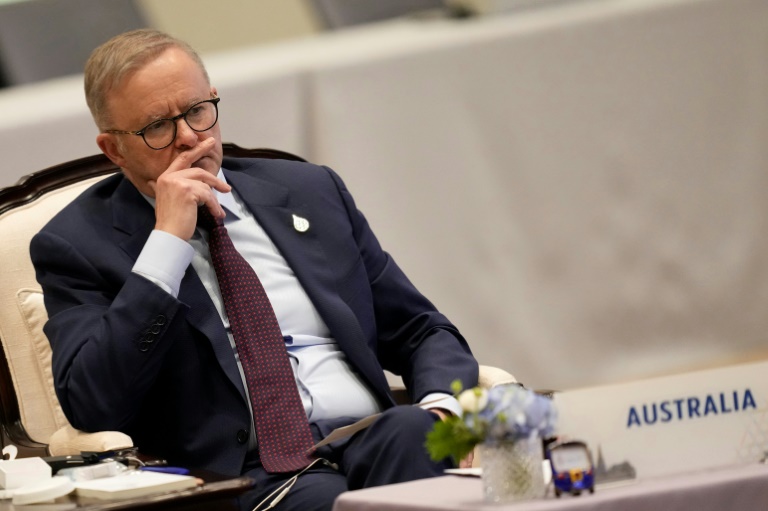Centre-left Albanese was swept to power this year on a wave of popular anger about the pro-fossil fuel stance of Australia's decade-old conservative government
Australia hopes to host the 2026 COP summit, Prime Minister Anthony Albanese said Saturday, seeking to overhaul his country’s reputation for foot-dragging on climate change.
“It is a good opportunity, I believe, for Australia to show and to host what is a major global event,” Albanese said during a visit to Bangkok.
Centre-left Albanese was swept to power this year on a wave of popular anger about the pro-fossil fuel stance of Australia’s decade-old conservative government.
He has since introduced a 2050 net zero emissions target — not ambitious by world standards, but a near-revolution for Australia, one of the world’s largest gas and coal producers.
He has also vowed to co-host a COP summit with Pacific Island allies — who are under serious threat from rising sea levels and who have long criticised Australia’s climate change scepticism.
Albanese may have hoped to host the event before he faces reelection in 2025, but diplomatic horse-trading means 2026 is now more likely.
The United Arab Emirates is slated to host the talks in 2023, a European country is hoping for the 2024 event and Brazil is bidding for the 2025 talks, leaving 2026 as the most likely option for Australia.
“I’ve had a very positive response from all of the nations that I have raised it with,” Albanese said.
If the summit materialises, it would be symbolic of a dramatic shift for Australia.
At successive COP talks, the country’s delegation has been a thorn in the side of negotiators, refusing to compromise and winning deep carve-outs that significantly weakened overall agreements.
The Climate Council’s Wesley Morgan — an expert on Australia and Pacific policy — described Australia’s COP bid as a “very big deal”.
It would, he argued, confirm Australia’s shift away from fossil fuels, improve sometimes fraught relations with the Pacific Islands and may force even Canberra to adopt more ambitious targets.
“Hopefully (it) means Australia will commit serious policy for deeper emissions cuts this decade,” he said.
Australia remains a large fossil fuel producer and coal mining provides thousands of jobs in key electoral districts.
But simmering public anger at devastating bushfires and two years of massive flooding have boosted domestic support for change.
Albanese has vowed to turn the sun-kissed island-continent into what he calls a “renewable energy superpower”.









